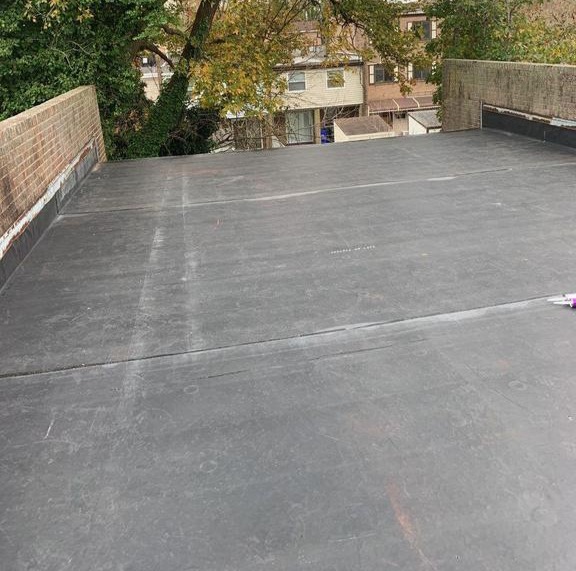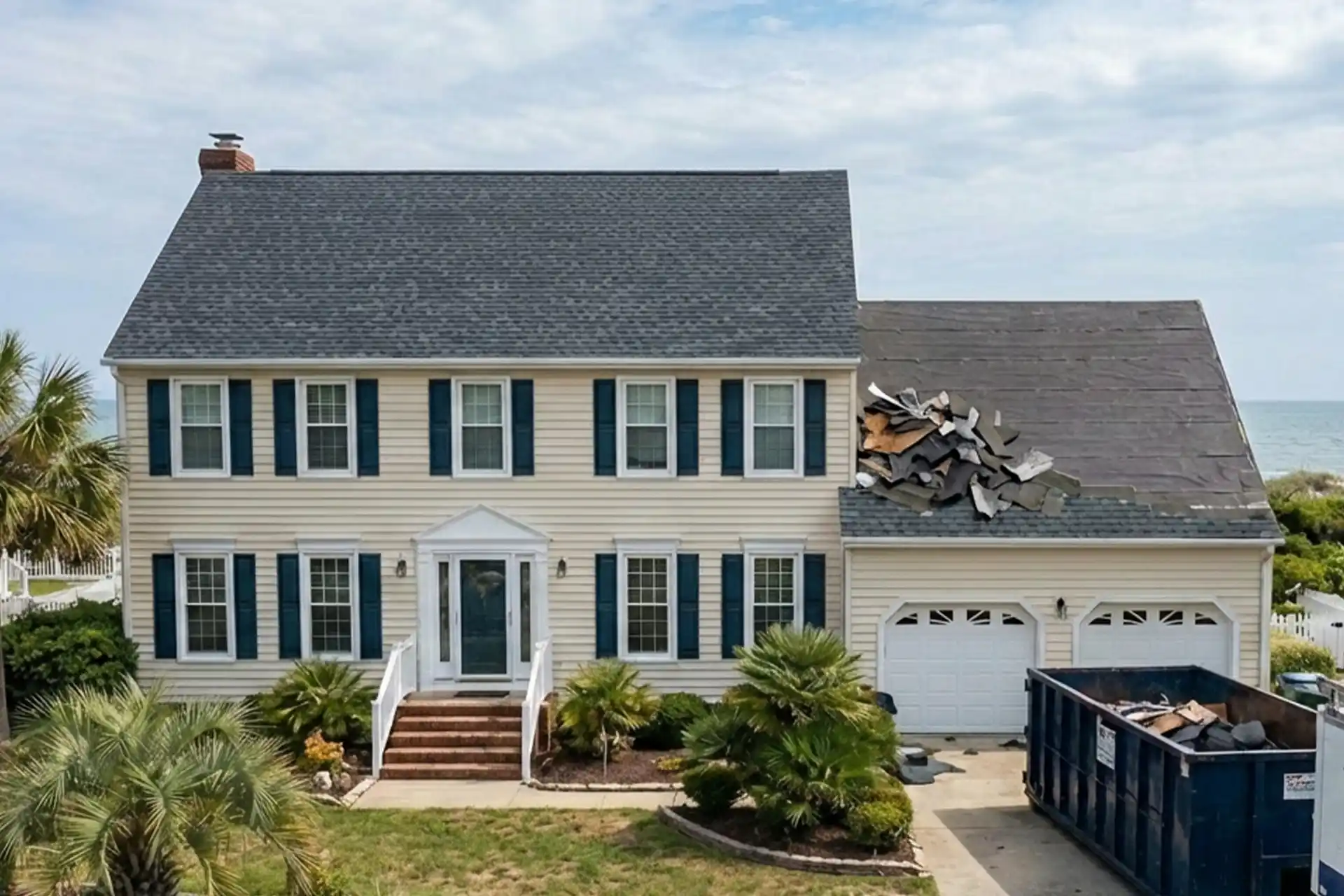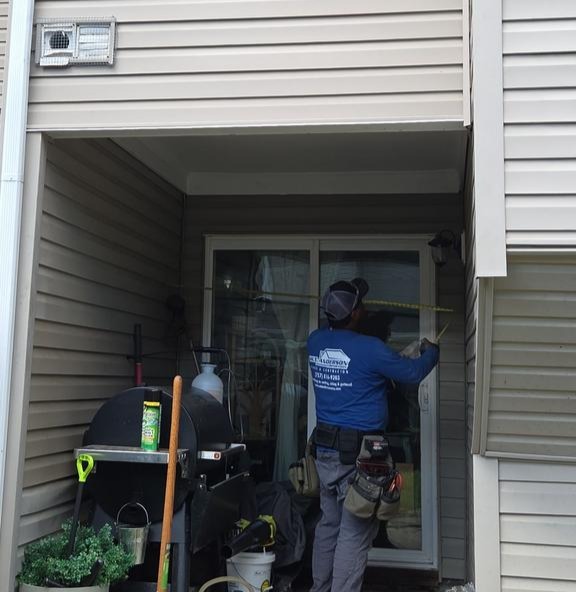Should I repair or replace my commercial roof?
Use our quick contact form to get in touch with our team. We will respond shortly.

If you manage or own a commercial property in Virginia Beach, Norfolk, Chesapeake, or Suffolk, roof maintenance is one of those things you can’t afford to ignore. Whether it's an office building in Town Center, a retail space in Norfolk, or a warehouse in Suffolk, your roof is critical to protecting your business, assets, and tenants.
But when leaks, ponding water, or visible wear and tear show up, the big question is:
Should you repair it—or replace it entirely?
Here’s how to make the right call, based on local conditions, industry best practices, and WT Anderson’s 20+ years of commercial roofing experience across Hampton Roads.
When Roof Repairs Make Sense
Not every roofing issue means full replacement. In fact, many commercial roofs in the area just need targeted repairs—especially if:
- The damage is isolated (such as one leaking area or a puncture from HVAC work)
- The roof is relatively new (under 10 years old)
- You’ve kept up with regular inspections and maintenance
- There’s no underlying structural damage or moisture intrusion
Common Repairable Issues in Hampton Roads:
- Wind-lifted seams or flashing (frequent in coastal storms)
- Punctures from falling limbs or rooftop equipment
- Minor membrane cracks or blisters
- Ponding water in specific low spots
✅ Example: A flat TPO roof in Norfolk’s industrial park with one area of ponding and cracking can often be repaired with a reinforced patch and proper drainage adjustments—extending the roof's life by years.

Signs It’s Time for Full Roof Replacement
Repairs only go so far. If your roof has reached the end of its life—or if problems keep coming back—replacement may actually save you money long term.
Here’s when to seriously consider a full replacement:
- The roof is 15–25+ years old
(Most low-slope roofs have a service life around 20 years) - Leaks are widespread or chronic
- Moisture has penetrated the insulation or decking
- You’ve had multiple repairs in the past 1–3 years
- Energy bills are climbing due to poor insulation or reflectivity
📍 In areas like downtown Portsmouth or older sections of Suffolk, many buildings still have built-up (BUR) or modified bitumen roofs installed in the early 2000s—well past their typical service life.
Bonus Consideration: Code Upgrades
In some cases, roof replacement may trigger the need to bring the roof system up to current Virginia building codes, particularly related to insulation (R-value) or wind uplift ratings. That’s especially important in hurricane-exposed zones near the coastline.
Source: National Roofing Contractors Association (NRCA) + regional contractor data (2024)
Keep in mind: repairs may seem cheaper up front, but frequent patching on a failing roof can end up costing more than a single, well-planned replacement.
Consider Your Building Type & Use
If your building houses sensitive equipment (like a medical office in Virginia Beach), or you lease to retail tenants who can’t afford disruptions, a proactive replacement might be the safest route. On the other hand, a warehouse with minimal interior exposure might tolerate a few repairs before needing a full system upgrade.
Roof Inspection: The Critical First Step
Whether you're leaning toward a quick fix or thinking about a full re-roof, the first step is a professional roof inspection. At WT Anderson, we provide:
- Thermal imaging (to detect hidden moisture)
- Detailed condition reports
- Clear repair vs. replace recommendations
- Budget-conscious solutions tailored to your building and goals
Final Thoughts
So—repair or replace your commercial roof? The answer depends on your roof’s age, condition, usage, and budget. In many cases, a targeted repair is enough. But if you’re seeing recurring issues or your roof is nearing the end of its life, replacement could save you time, money, and headaches down the road.
Need an expert opinion?
Contact WT Anderson for a free commercial roof evaluation. We’ve served the Hampton Roads area for over two decades and can help you make the smart call for your building—no pressure, just honest answers.
Sources:
- National Roofing Contractors Association (NRCA)
- International Code Council – IBC Roof Requirements
- RSMeans Data from Gordian – Commercial Roofing Costs





